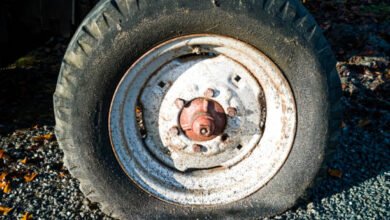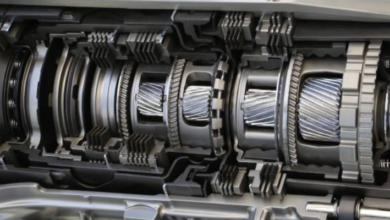Gear Slip in Manual Transmission: A Comprehensive Guide

Symptoms of Gear Slip
The symptoms of a car slipping gears can vary depending on whether you have an automatic or manual transmission. Here are the symptoms of Manual Transmission:
1. Difficulty Shifting Gears:
In manual transmissions, encountering resistance or difficulty when shifting gears is a common issue that can arise due to various reasons, including worn-out synchronizers, damaged gear linkage, or low transmission fluid levels. This difficulty can make gear changes feel laborious or require more force than usual, affecting the overall driving experience and potentially indicating the need for transmission repairs or adjustments.
2. Gear Engagement Issues:
When gears in a manual transmission fail to engage properly, it can result in unsettling symptoms such as grinding noises, gear slippage, or the sensation of the gear lever slipping out of place during driving. These issues can occur due to worn-out gear teeth, damaged synchros, or improper clutch adjustment, and they often require prompt attention to prevent further damage to the transmission and ensure safe operation of the vehicle.
3. Clutch Slippage:
Clutch slippage in manual transmissions occurs when there is insufficient friction between the clutch disc and the flywheel, causing the engine to rev higher than normal without a corresponding increase in vehicle speed during acceleration. This phenomenon can result from a worn-out clutch disc, pressure plate, or release bearing, and it may produce a distinct burning smell due to excessive heat buildup in the clutch assembly, indicating the need for clutch replacement or adjustment.
4. Burning Smell:
A burning odor emanating from the transmission or clutch assembly of a manual transmission vehicle often indicates excessive friction and heat buildup within these components, potentially resulting from clutch slippage, inadequate lubrication, or worn-out parts. This unpleasant smell can permeate the cabin of the vehicle and should be addressed promptly to prevent further damage to the transmission system and ensure the safety and comfort of occupants.
5. Transmission Noise:
Unusual noises such as grinding, whining, or clunking emanating from the transmission or clutch assembly of a manual transmission vehicle can be indicative of various issues, including worn-out gears, bearings, or synchronizers, loose or damaged transmission mounts, or inadequate lubrication. These noises may occur during gear shifts, acceleration, or deceleration and should be investigated promptly to identify and address the underlying cause, preventing further damage and ensuring the continued reliability of the vehicle.





Your writing is not only informative but also incredibly inspiring. You have a knack for sparking curiosity and encouraging critical thinking. Thank you for being such a positive influence!